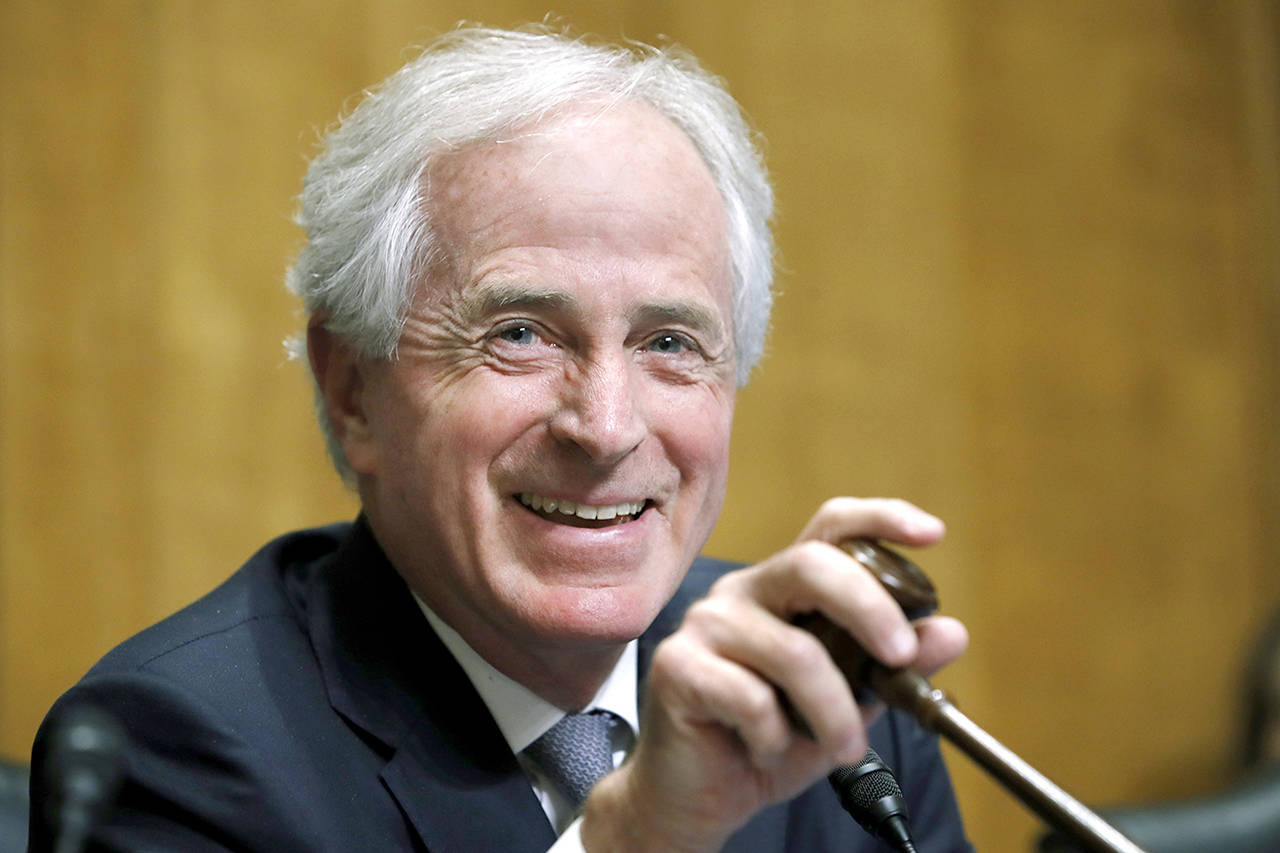By Jeff Stein / The Washington Post
Sen. Bob Corker, R-Tenn., is expressing alarm about new projections of the Republican tax law’s impact on the national deficit, saying if they prove true he may have made a mistake supporting the bill.
The latest estimates from the Congressional Budget Office are similar to other estimates that were available to Corker both when he voted for the final version of the bill and when he voted against an earlier version because of its impact on the deficit.
“If it ends up costing what has been laid out here, it could well be one of the worst votes I’ve made,” Corker said at a hearing of the Senate Budget Committee on Wednesday, in comments first reported by The Hill’s Niv Elis. He added in an interview with The Washington Post: “If this is accurate, obviously it’s a terrible vote.”
Earlier this week, the CBO said the new tax law would cost the United States $1.8 trillion over the next decade, in part because of its dramatic reduction in the tax rate paid by corporations. When factoring in extra growth created by the tax overhaul, the law is projected to cost at least $1.3 trillion, the analysis showed.
The Joint Committee on Taxation, Congress’s official scorekeeper, estimated in December that the tax law would cost $1.4 trillion over 10 years, or about $1 trillion when accounting for the effects of higher growth. The nonpartisan agency also said in late November that the tax plan would increase the deficit by $1.4 trillion, or by a little more than $1 trillion when accounting for additional growth. (CBO’s new number is slightly higher partly because stronger economic growth since last fall suggests the federal government is missing more revenue than it would have otherwise received.)
Corker first voted against the tax cut measure after the JCT’s analysis, saying in early December that he feared the legislation “could deepen the debt burden on future generations.”
The senator reversed his position and voted for the bill about three weeks later, when lawmakers took up the version that reconciled the House and Senate bills. None of the changes made in the time between Corker’s vote against the bill and his vote for it significantly altered its projected impacts on the nation’s deficit.
“I had the same concerns then – not more, not less, the same concerns,” Corker said Thursday. “I don’t think the growth numbers [CBO] laid out are accurate. Part of my argument is we need some data to reinforce that what we’ve done is something that will work.”
In November, Corker proposed adding a “trigger mechanism” to the bill that would pull back some of the tax cuts if the revenue wasn’t meeting expectations, but the Senate parliamentarian voided Corker’s proposal and kept it out of the bill. Without it, Corker said, he couldn’t support the measure.
In between the senator’s yes vote and his no vote, nonpartisan analysts published a series of projections saying the law would be about as expensive as the CBO estimated this week.
On December 1, the Tax Policy Center, a nonpartisan think tank, published a study saying the tax law would boost the deficit by $1.4 trillion over a decade, or by $1.2 trillion including increased growth. Including interest costs, the law would cost $1.8 trillion by 2027, TPC said.
About two weeks later, Mark Zandi, chief economist of Moody’s Analytics, told Congress that the tax law would cost about $1.5 trillion and that the effects of higher growth would not substantially offset that increase.
Two days after that, economists with the University of Pennsylvania’s Penn-Wharton Budget Model said the proposal would increase America’s debt by between $1.9 trillion and $2.2 trillion over the next decade.
On December 18, the Committee for a Responsible Federal Budget, another nonpartisan think tank, projected that the tax law would cost $1.46 trillion over 10 years, or $2.5 trillion when factoring in higher interest payments.
The most optimistic projections came that same day, when the Tax Foundation, a right-leaning think tank, found the plan would cost the nation at least $1.47 trillion over 10 years, or $448 billion factoring in higher growth.
Three months earlier, Corker had said he would not vote for the tax package if it added “one penny” to the deficit.
Talk to us
> Give us your news tips.
> Send us a letter to the editor.
> More Herald contact information.

























